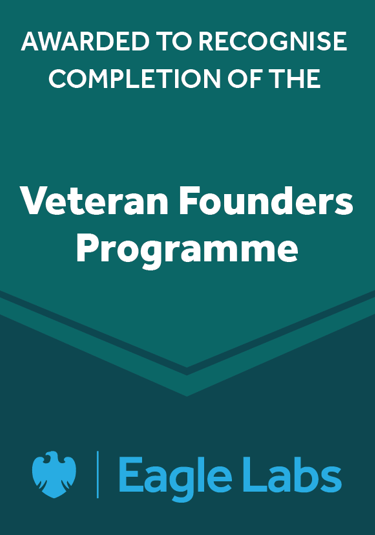
#2: Coaching, Mentoring and Training: Why Coaching Delivers the Fastest and Deepest Results
Jamie Lennon
8 min read
Organisations often invest heavily in leadership development, yet many leaders still fail to grow in ways that genuinely transform their behaviour or their impact. This is because development approaches are not all created equal. Training teaches information. Mentoring provides guidance. Coaching delivers change. Real, lasting, behavioural change.
Leaders often feel unsure about which approach they need. When they struggle with confidence or clarity, they wonder whether they should attend another course. When they face new responsibilities, they wonder if a mentor might help. When they feel overwhelmed or stuck, they assume they simply need more experience.
What they actually need is development that targets the root of leadership performance. Coaching is the only approach designed to do exactly that.
Why So Many Leadership Development Approaches Fall Short
Training and mentoring both play valuable roles, but neither is designed to create the type of transformation leaders need to operate at a higher level. Much of leadership development fails because it focuses on knowledge rather than behaviour.
A leader can spend an entire week in a classroom learning about communication strategies, emotional intelligence, conflict resolution or performance management. They may return to work enthusiastic and motivated, but within days the pressure of daily responsibilities pushes them back into old patterns.
This is not because they lack ability. It is because real change requires consistent reflection, structured challenge and personalised support. Human behaviour does not change simply through exposure to new information. It changes when that information is integrated into daily habits, evaluated in real time and supported through accountability.
Training cannot do this. Mentoring cannot do this. Coaching can – and DOES.
Understanding the Core Difference
To see why coaching delivers faster and deeper results, it helps to understand the true purpose of each approach.
Training provides information. It teaches leaders what good leadership looks like, introduces new models and reinforces organisational policies. It is often generic because it must apply to large groups. Training improves knowledge but rarely shifts behaviour.
Mentoring provides experience based guidance. A mentor shares what they have done, how they handled similar situations and how they learned from mistakes. Mentoring can accelerate learning, but it often relies on replication rather than personal discovery. It is heavily influenced by the mentor’s preferences, not necessarily the mentee’s potential.
Coaching provides development that is entirely personalised. It focuses on the leader’s goals, challenges, mindset and behaviour. It does not prescribe answers. Instead, it creates the conditions where leaders find their own solutions, develop new habits and strengthen their identity. Coaching is a structured, reflective process that targets behaviour because behaviour shapes leadership impact.
This focus on behavioural change is what separates coaching from every other development method.
Coaching Works in Real Time
Leadership challenges do not present themselves neatly during scheduled training courses. They emerge suddenly, unpredictably and often at the worst possible moment. A conflict erupts in a team meeting. A decision needs to be made quickly. A difficult conversation can no longer be avoided. A new responsibility is added without warning.
Training cannot respond to these moments because it is static. Mentoring can help, but mentors often focus on offering solutions based on their experience. Coaching, however, operates in real time. It responds to what is happening now, not to hypothetical scenarios.
When a leader brings a current challenge into a coaching session, they receive targeted support that immediately applies to their working world.
The session might explore how they are approaching the situation, what assumptions are influencing their decisions, what patterns they are repeating or avoiding, and what outcome they genuinely want. The leader leaves the session with clarity and a practical strategy they can use immediately.
The result is rapid growth. Instead of waiting for a course or hoping experience teaches them eventually, leaders make tangible progress in real time. The learning is direct, relevant and immediately beneficial.
Coaching Creates Accountability That Actually Works
One of the most powerful forces in human development is accountability. But accountability is only effective when it is both supportive and focused. Coaching provides exactly this.
In training, accountability is minimal. Participants may take notes, answer questions or complete activities, but there is rarely follow up once the course is finished. Mentoring provides some accountability, but it often centres around whether the mentee followed the mentor’s advice.
Coaching provides structured accountability that is both personalised and developmental. The leader sets goals based on their priorities. The coach supports them in identifying the behaviours required to achieve those goals. Then the leader reflects on their progress during future sessions.
This creates a powerful psychological effect. Leaders begin to approach their work with more intention because they know they will be returning to explore their decisions, actions and thought processes. It is not the fear of judgement that drives behaviour. It is the commitment to improvement and the clarity gained through reflection.
This type of accountability accelerates progress far faster than relying on self-discipline alone. Leaders do not just hope they will improve. They create the conditions that make improvement inevitable.
Coaching Targets the Root Cause, Not the Symptoms
Most leadership problems present as symptoms. A leader notices they struggle with confidence in high pressure meetings. They feel overwhelmed by workload. They avoid difficult conversations. They become reactive in conflict. They silence themselves in front of senior colleagues. They overcompensate to gain approval. They hesitate when decisions matter.
Traditional development often addresses the symptom. A leader is sent on a communication course. They attend a resilience workshop. They read a book on confidence. They receive feedback about assertiveness.
The problem with this approach is that it ignores the root cause. A lack of confidence is rarely about competence. Conflict avoidance is rarely about lack of communication skill. Overwhelm is rarely about poor time management.
These issues stem from beliefs, patterns and internal narratives that leaders often do not know they carry. Coaching helps identify the root cause. For example:
A leader who avoids difficult conversations may fear being disliked or seen as unfair
A leader who struggles with confidence may be battling a belief that they are not experienced enough
A leader who feels overwhelmed may be trying to prove themselves through over commitment
A leader who becomes reactive in conflict may be triggered by past experiences
A leader who hesitates in meetings may be doubting the value of their perspective
Once these patterns are explored, the leader can begin to shift them. The behavioural change becomes lasting because it targets the foundation, not the surface.
The Power of Personalisation
No two leaders are the same. They have different experiences, strengths, pressures, insecurities and aspirations. This makes generic development insufficient. A standard leadership programme cannot adapt to the unique challenges of each leader. A mentor can provide personalised guidance, but not personalised behavioural development.
Coaching adapts to the individual at every stage. The conversation shifts based on what the leader is experiencing. The goals adjust based on their growth. The strategies evolve as their environment changes. Coaching meets leaders where they are and helps them reach where they need to be.
This personalisation creates transformation that feels natural rather than forced. Leaders begin to understand themselves deeply. They learn how they think, how they react, how they make decisions and how they communicate. This level of self-awareness is incredibly powerful. It allows them to lead authentically rather than copying others or following a model.
Authenticity builds trust. Trust builds influence. Influence builds results.
Coaching Builds Leadership Identity, Not Just Leadership Skills
Leadership is not a collection of skills. It is an identity. A leader’s identity influences how they show up, how they react under pressure, how they communicate, how they set boundaries and how they inspire others.
Training teaches skills, but skills without identity are fragile. A leader can learn to manage conflict, but if their identity is rooted in avoiding confrontation, they will revert to avoidance. A leader can learn time management tools, but if their identity is tied to overworking, their behaviour will not change. A leader can learn communication techniques, but if their identity tells them their voice is less valuable, they will continue to stay quiet.
Coaching focuses on identity because identity shapes behaviour. It helps leaders understand how they see themselves and how that perception shapes their leadership. When identity shifts, behaviour shifts naturally. Leaders begin to embody confidence, clarity and authority rather than performing them.
Identity based coaching is transformative because it addresses the very essence of leadership.
The Advantage of Coaching from a Senior Clinical and Military Influenced Leader
It wasn’t an accident, that in the late 1990s and early 2000s, faced with a recruitment shortfall and threatened by a strategic defence review, the Royal Marines shifted their focus at the Commando Training Centre to “teach, coach, mentor” as a fundamental approach to delivering elite forces via the Commando Training Wing. This shift in approach very quickly resulted in recognition as the gold standard, not just in UK Defence but globally and across NATO partners. It is a fundamental reason why the Royal Marines remains one of the highest performing organisations on the planet, and continues to rapidly evolve to stay ahead of an ever changing global security landscape. The fact that recruits are coached from day one, not just taught and mentored, sets them up for success in the most demanding environments imaginable.
Not all coaching is equal. Experience matters. Leadership experience matters even more. Leaders facing real responsibility need a coach who understands high pressure environments, complex decision making and the emotional weight of leadership.
Our coaching approach is influenced by years of senior military and clinical leadership where decisions carried significant consequences. We have led teams through difficult operational pressures, supported staff through emotionally intense scenarios and navigated systems where clarity and resilience were essential. The principles of elite military influenced leadership have shaped our approach to structure, accountability, communication and decisiveness.
This background brings depth and realism to coaching. Leaders do not need vague encouragement. They need grounded insight. They need someone who can understand the pressures they face. They need someone who can challenge them with respect, support them with clarity and guide them with credibility.
This type of coaching creates rapid progress because it is rooted in lived experience, not theory alone.
Why Coaching Delivers the Fastest Results
The pace of modern leadership demands development that keeps up with reality. Coaching is fast because it is focused. There are five reasons why coaching produces rapid growth.
First, coaching is personalised. Leaders do not waste time on irrelevant content. They work directly on what matters.
Second, coaching is reflective. Leaders slow down long enough to make better decisions when it matters most.
Third, coaching is accountable. Leaders follow through because they are committed to tangible progress.
Fourth, coaching is adaptive. As new challenges emerge, coaching evolves with them.
Fifth, coaching is behavioural. Changes in behaviour create immediate changes in results.
This combination makes coaching the most efficient, effective and sustainable form of leadership development available.
The True Value of Coaching
Coaching is not simply another development tool. It is a strategic advantage. Leaders who receive coaching communicate more effectively, make faster and better decisions, build stronger teams and operate with more confidence. They develop the internal clarity needed to navigate complexity.
Organisations that invest in coaching benefit from higher performance, stronger culture, reduced conflict and more capable leadership at every level. The return is significant and long lasting.
Most importantly, coaching equips leaders to grow in ways they did not realise were possible. They uncover potential that has been hidden by stress, self-doubt or unhealthy habits. They gain insight that reshapes their leadership identity. They move from reactive to intentional.
Coaching is not about fixing problems. It is about unlocking potential.
If You Want to Lead at a Higher Level, Coaching Is Your Most Powerful Tool
If you want to move beyond surface level leadership. If you want to shorten the learning curve. If you want to operate with confidence, clarity and strategic influence. Coaching is the development approach that will get you there.
Training will teach you. Mentoring will guide you. Coaching will transform you.
When you are ready for that transformation, we are here to support you.
When you are ready for that transformation, we are here to support you.




READY TO TALK?
If you're ready to discuss your training compliance or business consultancy needs, or you simply want to understand our services more, click the button below to schedule a FREE 30 minute call, and allow us to answer all your questions and provide insights into the best course of action for your business.
© 2026 1664 Training Solutions Ltd. | Privacy Policy
Website designed by Mpowering Solutions


1664 TRAINING SOLUTIONS LTD.
Our Services:


